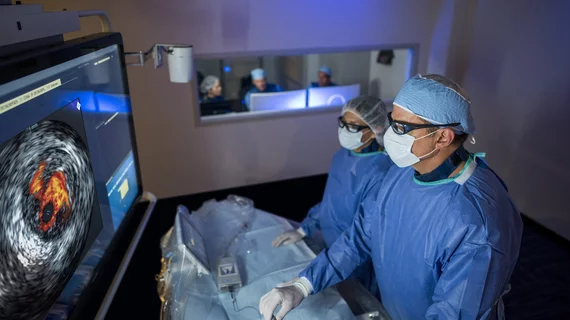Philips to acquire interventional device firm Intact Vascular for more than $275M
Royal Philips on Thursday announced that it’s acquiring minimally invasive device manufacturer Intact Vascular for more than $275 million.
Around since 2011 and based in Wayne, Pennsylvania, the company specializes in treating peripheral artery disease. Philips is aiming to strengthen its image-guided therapy portfolio, combining the company’s interventional radiology platform and diagnostic devices alongside Intact’s “unique” implantable device for PAD.
“Through the integration of our interventional imaging systems and diagnostic and therapeutic devices, we will be able to provide clinicians with a complete procedural solution to optimize the treatment of patients with this disease.” Chris Landon, senior VP and general manager of image-guided therapy devices at Philips, said in a statement.
The Amsterdam-based imaging giant’s peripheral vascular portfolio already offers a range of items. Those include imaging systems for guidance, intravascular ultrasound catheters, peripheral atherectomy tools to remove blockages, and therapy products to treat lesions. With the acquisition, they’ll add, among other things, IV’s Intact Vascular Tack implant—a “first of its kind” dissection repair device lending treatment for PAD dissections after balloon angioplasty.
Philips will pay upfront cash of $275 million to acquire Intact Vascular, along with additional deferred payments of $85 million. They expect to close the transaction in the third quarter of this year.

